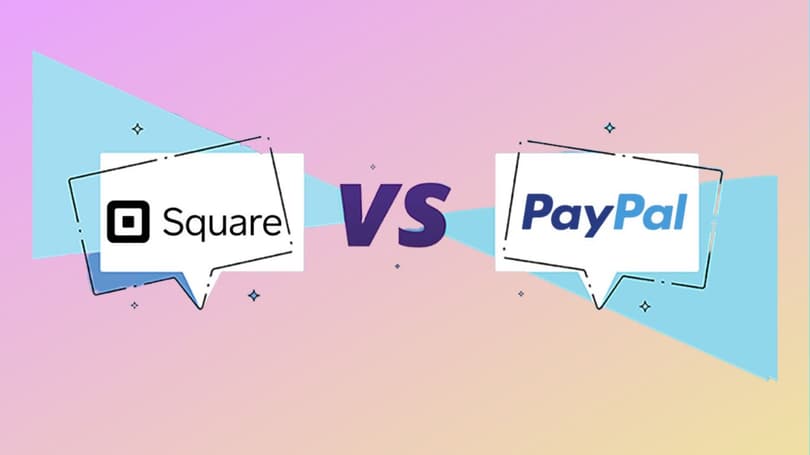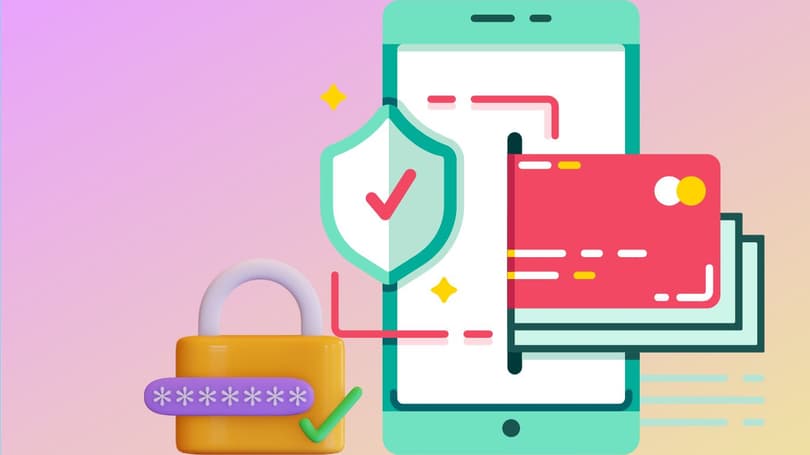Square vs. PayPal: Which One Is Best?
Contents

While global societies have been combating the pandemic's limitations, the business world has struggled to secure resilience and continuity. It mostly succeeded thanks to the rapid adoption of remote work mode and digital payment methods. Now, 74% of consumers prefer digital transactions, according to Onbe’s “2022 Future of Payments Survey.” Moreover, McKinsey experts report that 9 in 10 Americans already use some form of online payment.
The increased popularity of convenient digital payment platforms is especially beneficial for startups and SME business owners. But it’s also imperative to select your platform wisely. So today, we prepped a holistic overview of Square versus PayPal for online payments. We’ll focus on major features, e-commerce and in-person sales solutions, fees, and security of each provider to help you solve the dilemma of PayPal vs Square for small businesses. What should you select? It’s a tough choice, so let’s dive into our insights.
BUSINESS FEATURES AND SERVICES OVERVIEW: SHOULD YOU CHOOSE PAYPAL OR SQUARE?

When it comes to the Square vs PayPal comparison, the first thing to sort out is the distinction in features and services you get with a particular platform. Both providers offer features most valuable for SME businesses: POS suits, invoicing, mass payments, individual transactions, reporting, and e-commerce activities.
Still, experienced business owners consider Square the best choice for in-person and mobile payment processing. It has a highly affordable ecosystem of scalable POS products and services that meet your business goals, especially if you’ve only started. Meanwhile, PayPal would be your go-to for online shopping, digital transactions, and e-commerce business. But there is more to them both — check it out!
Payment Processing
The winner of the PayPal credit card processing vs Square payments rivalry is still unclear. We’ll be straightforward with you here — Square’s credit card processing approach is mostly enjoyable only for small businesses because of the quick setup and predictable rates. Meanwhile, PayPal enables international payments and dynamic currency exchange, which are must-haves for global operators. The fees on both platforms when it comes to Square vs PayPal payment processing are up for debate, though. For the sake of an accurate and transparent PayPal to Square comparison, let’s take a look at the current credit card processing fees.
Fees by Transaction Type | PayPal | Square |
|---|---|---|
Contactless payments | 2.29% + a fixed fee that varies by currency | 2.6% + $0.1 |
Manually entered transactions | 3.49% + a fixed fee that varies by currency | 3.5% + $0.15 |
International transactions | 1.5% for all commercial transactions + a fixed fee that varies by currency | Normal fees + 1% per transaction + 1% if currency conversion is required |
Chargeback | $20 | None |
Refund | No added refund fee, yet seller fees are not paid back | No added refund fee, yet seller fees are not paid back |
As you can see, processing fees for PayPal and Square are very close, at least at some major points. However, each system has its peculiarities and specific features that cannot be directly compared in terms of fees. So, you should check applicable fees on the official websites of PayPal and Square for each separate service, solution, or function you are interested in.
Mobile Payments (mPos)
You get mobile bank card readers that both vendors offer for in-person sales. Unlike the previous case, the PayPal to Square POS comparison has a more obvious winner. Square tops the market of in-person transactions thanks to its unmatched mPOS offering (not the fees, though).
The platform has out-of-the-box POS packages that are feature-rich with everything needed for retailers, merchants, restaurants, niche contractors and creators, beauty services, the fitness industry, and appointments.
With PayPal’s integrations, you can develop your own mobile payment solutions tailored to your business needs, but it will be far less robust than Square’s native POS. PayPal also doesn’t provide free terminals and has transaction fees unattractive for small-ticket entrepreneurs.
E-commerce Solutions
As we’ve mentioned earlier in this Square vs PayPal comparison, if you own an ambitious e-commerce company, PayPal will suit your goals more effectively than competitors with its sophisticated set of checkout options. The platform has a wide array of in-house tools, third-party efficient shopping cart integrations, and modern developer tools that empower you to customize your sales system and sync PayPal with your online shop and shipping or accounting software.
Add that to the retail-friendly features we already outlined — like international sales, invoicing, mass payments, BNPL, and marketing — and you get the perfect tool you can use as a primary one or as an additional option leveraging PayPal Checkout.
Square doesn’t offer this flexibility. Plus, when you compare PayPal and Square payment processing, you’ll see that, as a digital payment processor, PayPal remains unbeaten.
Security and Fraud Prevention

Despite global turbulence in cybersecurity, 65% of consumers consider digital money transfers the most secure among other payment methods. It’s true with PayPal and Square payment method, though, as providers apply the most advanced security measures like 2FA and end-to-end encryption to protect your and your clients’ financial information. Also, both vendors are PCI-compliant since they deal with the most rigid compliance standards and regulation laws.
Square vs PayPal: How They Treat Your Business’ Security
Both platforms are legit third-party processors, but are there any drawbacks? Yes, for sure. The biggest risk is account instability due to the mitigation policies required for licensed payment service providers. However, quick account setup and verification with minimum bureaucracy greatly compensate for this disadvantage. But what else is there?
PayPal
PayPal Commerce solution has a vaulting feature that allows you to store your customers’ banking data safely. The brand also monitors your transactions to eliminate fraud and cheating, so you won’t be able to mask your commercial payments as personal ones.
Square
Square stays popular and ubiquitous thanks to its reliability and security. The ISO 27001-certified brand invests in the industry-leading security tech built into every component of its payment processing system.
PRICING AND FEES
Square vs PayPal pricing fees vary, which might affect your income. Square doesn’t have monthly, minimums, and statement fees, and basic business PayPal is also free of monthly pricing. But when you look at transaction fees, there are some surprises. So, let’s take a look at the Square transaction fees vs PayPal payment commissions.
Transaction Fees: How Much Will You Pay for Services?
Looking at fees in Square vs PayPal credit card payments, PayPal’s are lower than its rival’s, but the platform has less visible commissions. Plus, personal payments are free, while you will pay an additional flat rate for commercial ones. So, in general, PayPal’s pricing could be heavy for small-ticket businesses, but it’s still about making a decision — either you need PayPal’s features or Square’s.
Additional Fees and Costs
Though both brands offer comprehensive pricing plans, PayPal also lets you opt for alternative offerings like microtransactions, charity-focused business discounts, and more. Meanwhile, Square offers the recurring payments option completely for free, unlike PayPal, which enables you to use it for free only when you leverage the PayPal checkout package.
PAYPAL VS SQUARE: WHICH ONE IS BETTER FOR MY BUSINESS?
This Square vs PayPal comparison requires your consideration, since you’re the only one who knows your business’ specifics. Which platform will bring your organization more value and better ROI? After reading our guide, we hope you find the correct answer to the question of PayPal vs Square for small businesses.
In a nutshell, if you conduct small-ticket operations or need a robust mPOS system, your choice should tilt in the Square direction. Otherwise, it would be better to look into PayPal for globally booming e-commerce activities and efficient digital payment processing.
FAQ
What is cheaper, PayPal or Square?
If sales are just your side hustle, or you have a local-focused business, Square offers lower card processing fees to meet your goals. You don’t need to overpay for a virtual terminal and chargebacks with Square. However, if you require non-profit discounts or cheap in-person payments, then PayPal will fit.
Do I have to provide my SSN to set up a PayPal or Square business account?
When selecting between PayPal vs Square for small businesses, you can rest assured that both platforms have strict security regulations. You won’t be able to verify your account without adding critical personal details. That is, you’ll have to state your valid social security number (SSN) when signing up.
Can I transfer money from Square to PayPal?
That will be impossible since Square doesn’t support direct transactions to PayPal. However, there is a way to withdraw your funds and transfer them to your PayPal account. Move your income from Square to a bank account supported by PayPal, and then transfer money from there.
Do I have to pay for Square and PayPal accounts?
No, no monthly or setup fees. Both vendors offer personal and business accounts for free, so you won’t have to pay anything except specific commissions for currency exchange rates, particular services, and payment processing. In PayPal’s case, you should also save some money to cover the $30 monthly fee for using a virtual terminal or advanced checkout features.




